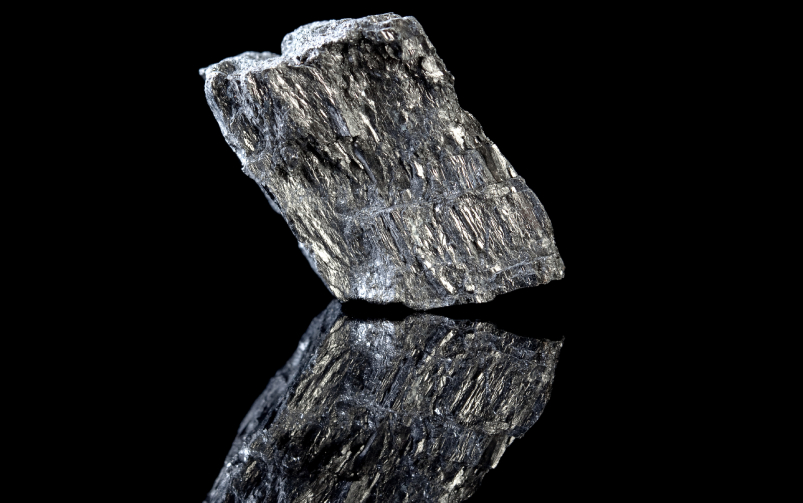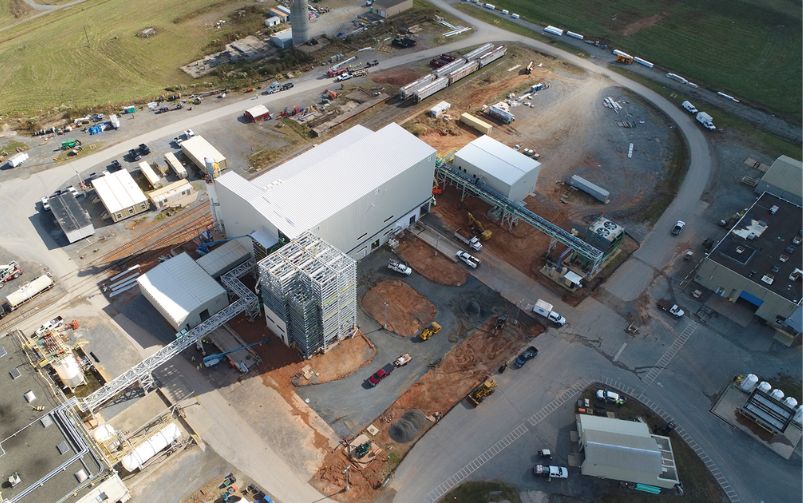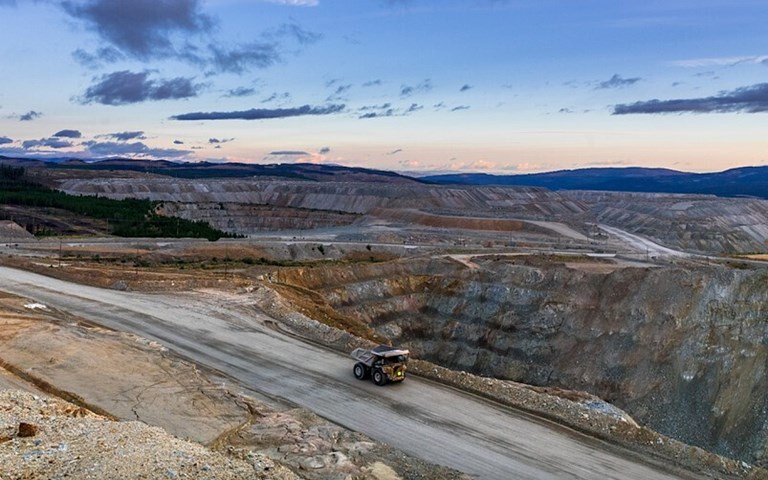Teck Resources failed to reach its copper and steelmaking coal production goals for 2022; the reasons included a temporary closure from a geotechnical event at its Highland Valley Copper operations in B.C. Image courtesy of Teck Resources.
Welcome back to your weekly mining news recap, where we catch you up on some of the news you may have missed. This week’s headlines include new critical mineral producers, a possible final nail for the Pebble mine and a lost-and-found radioactive capsule.
Ivanhoe Mines released positive results of its independent integrated development plan (IDF) for its Kamoa-Kakula copper mine, located in the Democratic Republic of Congo. A pre-feasibility study that was conducted as part of the IDF highlights the third and fourth phase expansions that pegs the life of mine at least 33 years, with a potential extension to 42 years and estimates an increase in annual production from 7.6 million tonnes to 19.2 million tonnes of copper by 2030.
Canada Silver Cobalt Works’ goal of becoming both a precious-metal producer and a supplier of critical minerals will now advance thanks to the recently reopened Temiskaming Testing Labs in Ontario. The company is set to process its own ore at the testing labs, which would play a significant role in the company’s transformation in becoming a critical metals hotspot. The company recently announced its completion of the reprocessing of waste rock material from the Castle mine in Gowganda, Ontario, with promising results for silver recovery. Results for nickel and cobalt are pending.
Canada’s federal government is investing $100 million through the Strategic Innovation Fund to aid BHP’s low-emissions Jansen potash mine project. The Saskatchewan-based mine is aiming to produce the lowest direct emissions of any potash mine globally, and this investment is meant to help achieve that goal.
The dumping of mining waste near Alaska’s Bristol Bay has now been banned by the Biden administration, effectively blocking the planned Pebble mine in the area, as reported by Bloomberg News. Pebble Limited Partnership has been attempting to mine gold and copper in the region for nearly 20 years, but the U.S. Environmental Protection Agency has stepped in, preventing any mining activity from taking place. Critics of the project say that mining-related activity in this area could negatively affect the waters of Bristol Bay, which are home to the world’s largest sockeye salmon harvest.
Following last week’s disappearance of a small but highly radioactive capsule belonging to Rio Tinto, the capsule has now been found by an Australian emergency services unit, as reported by Mining.com. The stainless-steel capsule containing a small amount of the radioactive isotope caesium-137, lost along a 1,400-kilometre-long highway in Western Australia, measures just eight millimetres long and six millimetres in diameter. Rio Tinto issued an apology for the loss of the capsule and expressed its gratitude to those who led the search.
Never miss another recap
Sign up for the latest news from CIM Magazine and the Canadian Institute of Mining, Metallurgy and Petroleum.
Teck Resources failed to reach its copper and steelmaking coal production goals for 2022 due to a geotechnical event, unplanned maintenance and harsh weather, as reported by the Financial Post. The company’s annual output of 270,500 tonnes of copper fell short of its estimate of 273,000 to 290,000 tonnes for the year. The 21.5 million tonnes of coal Teck produced fell short of its guidance of 22 million tonnes for the year.
The Naskapi Nation of Kawawachikamach and the Iron Ore Company of Canada have signed the Aganow Agreement, meant to establish a mutually beneficial relationship. This agreement will see more employment, environmental protection and training opportunities open up for Naskapi members, while also aiming to preserve traditional activities of the Naskapi Nation. The signing of the agreement comes after roughly two years of negotiations between the two parties.
Pure Gold Mining’s inactive Red Lake gold mine remains idle as none of the prospective buyers have put forth an attractive enough offer, as reported by Northern Ontario Business. Pure Gold will remain under creditor protection until March 10 in order to offer the company additional time to collect more information about the mine to facilitate a sale. Pure Gold filed for creditor protection in Oct. 2022 having exhausted the funds required to keep its Red Lake mine running, later putting it up for sale on Nov. 10, 2022.
Teck Resources has officially sold all of its stake in the Fort Hills oil sands mine to Suncor Energy and TotalEnergies EP Canada, the two remaining partners in the operation, as reported by Business in Vancouver. TotalEnergies acquired an additional 6.65 per cent stake for $312 million, and will now own 31.23 per cent of the Fort Hills mine in the Athabasca Oil Sands of Alberta, with Suncor owning the remainder. Suncor paid Teck $688 million to take an additional 14.65 per cent interest in Fort Hills.
Sprott Asset Management is taking steps to make it easier for investors to purchase interest in miners focused on lithium and other minerals important to the energy transition, as reported by Business in Vancouver. Sprott will introduce four new energy transition exchange traded funds: The Sprott Energy Transition fund, the Sprott Lithium Miners fund, the Sprott Junior Uranium Miners fund, and the Sprott Junior Copper Miners fund.
That’s all for this week. If you’ve got feedback, you can always reach us at editor@cim.org. If you’ve got something to add, why not join the conversation on our Facebook, Twitter, LinkedIn or Instagram pages?




